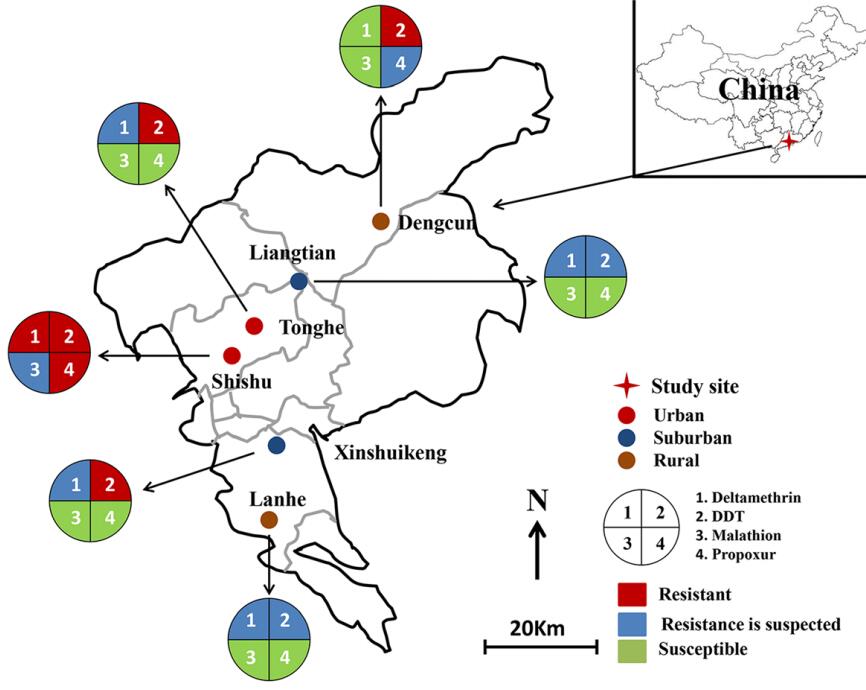Yiji Li, Jiabao Xu, Daibin Zhong, Hong Zhang, Wenqiang Yang, Guofa Zhou, Xinghua Su, Yang Wu, Kun Wu, Songwu Cai, Guiyun Yan*, Xiao-Guang Chen*
ABSTRACT
Background: Aedes albopictus (Skuse) is an invasive mosquito that has become an important vector of chikungunya, dengue and Zika viruses. In the absence of specific antiviral therapy or a vaccine, vector management is the sole method available for reducing Aedes-induced disease morbidity. Determining the resistance status of Ae. albopictus to insecticides and exploring the resistance mechanisms is essential for future vector control planning.
Methods: Aedes albopictus larvae and pupae were sampled from six sites (two sites each from urban, suburban and rural) in Guangzhou. The resistance bioassays were conducted against Bacillus thuringiensis israelensis (Bti): deltamethrin, propoxur and malathion for larvae; and deltamethrin, DDT, propoxur and malathion for adults. P450 monooxygenase (P450s), glutathione S-transferase (GSTs) and carboxylesterase (COEs) activities of adult mosquitoes were measured. Mutations at the knockdown resistance (kdr) gene were analyzed, and the association between kdr mutations and
phenotypic resistance was tested.
Results: Adult bioassays revealed varied susceptibility against DDT, deltamethrin and propoxur in the six Ae. albopictus populations. Significantly lower mortality rates were found in urban populations than suburban and rural populations. Urban mosquito populations showed resistance against DDT, deltamethrin and propoxur, while one rural population was resistant to DDT. All populations tested were susceptible to malathion. Larval bioassays results indicated that all populations of Ae. albopictus were sensitive to the larvicide Bti and malathion. Resistance to deltamethrin and propoxur was common in larval populations. The F1534S and F1534 L mutations were found to be significantly associated with deltamethrin resistance. Biochemical assays indicated elevated detoxification enzyme activities in the field mosquito populations.
Conclusions: Aedes albopictus populations in Guangzhou, especially in urban areas, have developed resistance to the commonly used insecticides, primarily DDT and deltamethrin. This finding calls for resistance management and developing counter measures to mitigate the spread of resistance.
Parasites & Vectors. 2018; 11: 4.
DOI : https://doi.org/10.1186/s13071-017-2581-y

